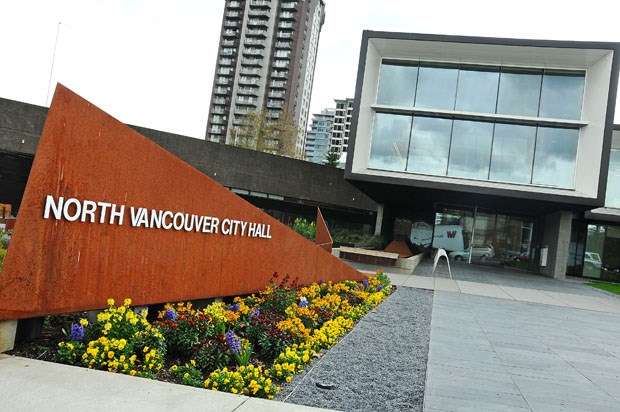Assessments may be down but tax rates are ticking up.
The City of North Vancouver is considering a 4.58 per cent property tax hike following a preliminary budget discussion at Monday’s council meeting.
The increase, which follows increases of 4.25 per cent in 2019 and 2.5 per cent in 2018, is partially due to what Mayor Linda Buchanan described as the “ebbs and flows” of the development industry.
The city’s planning and development department is anticipating revenue of $2.6 million in 2020 – a drop of $400,000 from 2019, primarily due to issuing fewer development permits.
Much of the construction underway in the city is from previously approved projects, Buchanan said.
“Even though we’ve been very good at approving 311 units ... the development community has shifted,” she said.
The tax rate is slated to be finalized in early April. However, the proposed property tax increase could be chopped by nearly one per cent before then, according to the city’s finance director Ben Themens. Currently, the budget has earmarked $1.5 million for new growth but that could rise to around $2 million.
“We will have to see what happens in the next couple of weeks,” Themens said, explaining that one per cent in property taxes equals approximately $525,000 for the city.
The lion’s share of the increased tax rate stems from a jump of $1,461,000 in salaries and other wages, including $577,900 for employees hired in 2019. In total, the city has the equivalent of 517 full-time staffers.
Policing costs are also set to rise $847,000 in 2020. Those costs are shared with the district, but as the city’s population rises along with crimes and calls for service, the city is now set to pay an extra $278,000 – just below 45 per cent of the cost shared by the municipalities. The remainder of the extra policing costs are due to a 5.1 per cent contract increase.
The budget also includes one per cent for infrastructure, a portion for the new Harry Jerome rec centre, and 0.71 per cent for staff and programs including a new city systems analyst, an environmental sustainability specialist, $100,000 for a neighbourhood resilience program and $6,400 for separated bike lane maintenance.
While the city is planning a balanced budget for 2020, staff are expecting a $9.2-million shortfall in the project plan from 2021 to 2023. While a one per cent tax levy will help, staff suggested Monday some projects may need to be deferred.
Property taxes are calculated by dividing the assessed value of a property by 1,000 and multiplying that figure by the tax rate. Besides the municipality, property taxes also fund the Municipal Finance Authority, BC Assessment, Metro Vancouver, TransLink and B.C. schools.
The rate doesn’t include utility rates, which are set to increase by four per cent, or an average of $1,293 in 2020.
In 2019, the average property tax bill was $2,611. Property taxes account for 81 per cent, or $66.5 million, of the city’s $82-million budget. Slightly more than one-third of that budget is earmarked for protective services, including $27 million for police and fire. The budget also includes $16.7 million for general government and $15.1 million for parks, recreation and culture.



